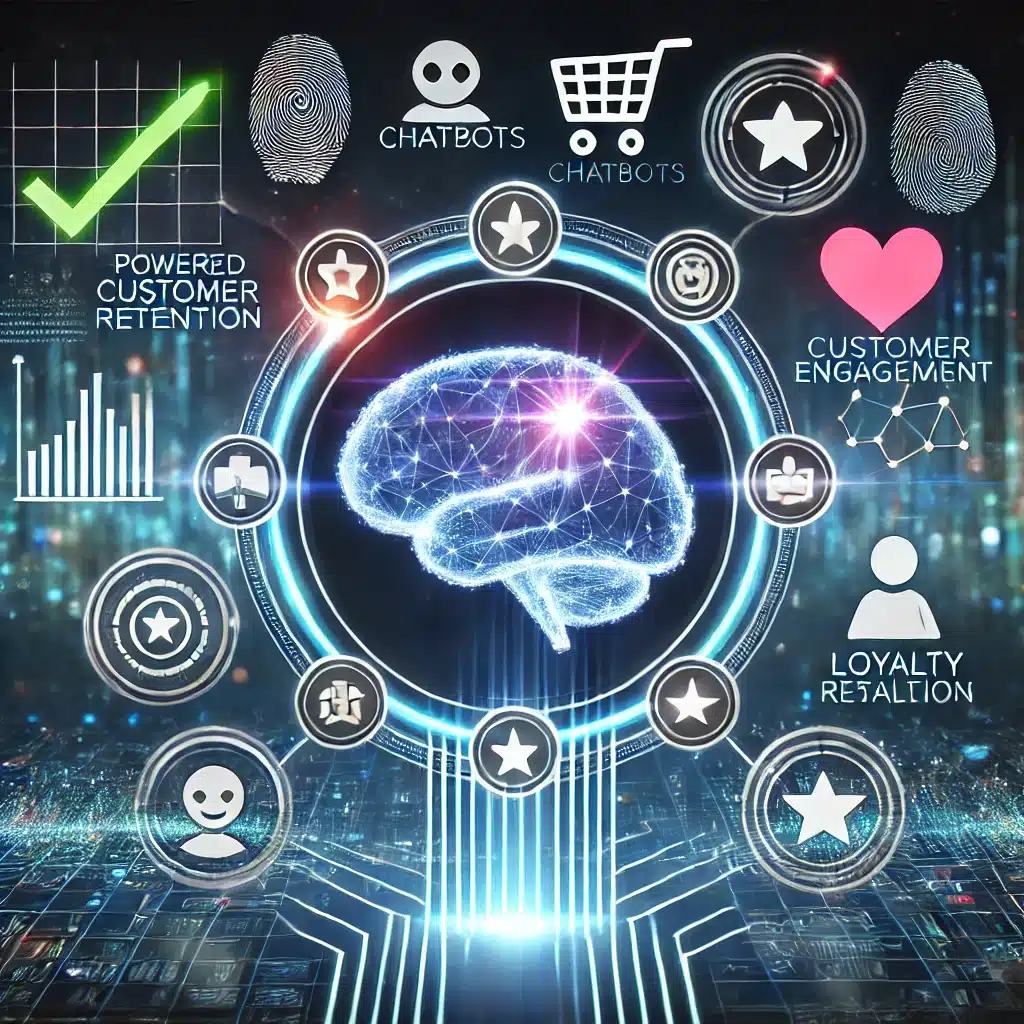In today’s fast-paced digital era, customer expectations are at an all-time high. They demand quick, accurate, and effective responses from customer service teams, with little patience for delays. Slow response times can lead to frustration, lower satisfaction levels, and even lost customers. To tackle these challenges, businesses are turning to Artificial Intelligence (AI) as a game-changing solution. AI is transforming customer service by reducing response times through automation, predictive analytics, and real-time assistance.
As the reliance on AI grows, so do the opportunities for businesses to stay competitive in an era where speed and efficiency are paramount. This article delves into how AI is revolutionizing customer service response times, the tangible benefits it brings to businesses, and the challenges that come with its implementation. By understanding the impact of AI on customer service, businesses can harness its potential to deliver unparalleled support, ensuring customer satisfaction and long-term success. This article explores the various ways AI is redefining customer interactions and the implications for businesses striving to stay competitive.
How AI-Powered Automation Revolutionizes Customer Support
AI-powered automation is one of the most effective tools for reducing customer service response times. Chatbots and virtual assistants, driven by AI technologies such as natural language processing (NLP), can handle a massive volume of inquiries simultaneously. This ensures that customers receive instant responses, even during peak hours.
Key Benefits of AI Automation:
- Instant Resolutions: Chatbots can instantly address common questions like order status or account balance, eliminating the need for human intervention.
- 24/7 Availability: Unlike human agents, AI-powered bots provide round-the-clock assistance, ensuring customers always have access to support.
- Freeing Up Human Resources: By automating repetitive tasks, AI allows human agents to focus on complex and nuanced customer issues.
For instance, an e-commerce platform using AI chatbots can reduce wait times significantly by addressing shipping inquiries or return requests in real-time. This streamlining of routine tasks enhances efficiency while delivering a seamless experience for customers.
Predictive Analytics for Proactive Support
AI’s predictive analytics capabilities also contribute to faster response times by enabling proactive customer support. By analyzing historical data and identifying patterns, AI can predict when a customer might need assistance and initiate contact before they even realize there’s an issue. This preemptive approach reduces the need for customers to reach out for help, as potential problems are addressed before they escalate. Predictive analytics also help prioritize incoming inquiries, ensuring that urgent matters are resolved promptly.
Examples of Predictive Support:
- Proactive Notifications: Sending alerts about potential delays or disruptions to customers before they contact support.
- Issue Prevention: Identifying potential technical glitches in a product or service and resolving them proactively.
- Priority Handling: AI can flag high-priority inquiries and ensure they are addressed immediately, minimizing frustration for urgent issues.
Predictive analytics shifts customer support from being reactive to proactive, reducing the volume of incoming inquiries and enhancing overall customer satisfaction.
Real-Time Assistance and Dynamic Routing
Real-time assistance is critical in ensuring customers receive timely help. AI facilitates dynamic routing by analyzing customer queries and directing them to the most appropriate resource.
How Dynamic Routing Works:
- Content Analysis: AI analyzes the content and sentiment of a customer’s message to understand the issue’s nature and urgency.
- Skill Matching: Based on the analysis, AI routes the inquiry to the best-suited agent or automated system for resolution.
- Time Optimization: This intelligent allocation of resources reduces the time customers spend waiting for assistance and increases resolution accuracy.
For example, a telecom provider might use AI to route billing inquiries to a specialized team, while technical issues are directed to technicians. This ensures that customers connect with the right expert faster, improving the overall experience.
Enhancing Agent Efficiency with AI Tools
AI doesn’t just help customers—it also supports customer service agents by providing them with the tools they need to work more efficiently. For example, AI-driven tools can suggest responses, surface relevant knowledge base articles, and provide agents with a summary of the customer’s history in real-time. By reducing the time agents spend searching for information or crafting responses, AI enables them to resolve issues faster and more effectively.

Challenges and Ethical Considerations in AI Implementation
Despite its numerous advantages, AI-driven customer service comes with challenges that businesses must address thoughtfully.
Key Challenges:
- Maintaining a Personal Touch: Over-reliance on automation can result in interactions that feel impersonal or robotic, especially for sensitive issues.
- Transparency: Customers must be aware when they are interacting with AI. Transparency builds trust and sets accurate expectations.
- Balancing Automation and Human Interaction: While AI excels at handling repetitive tasks, some scenarios require empathy and human understanding. Striking the right balance between AI and human agents is crucial.
By addressing these challenges, businesses can implement AI responsibly, ensuring both efficiency and customer satisfaction.
Measuring the Impact of AI on Response Times
To evaluate the effectiveness of AI in reducing response times, businesses must track key performance indicators (KPIs) that reflect customer service efficiency.
Important KPIs:
- Average Response Time: The time taken to acknowledge a customer inquiry.
- First Response Resolution Rate: The percentage of issues resolved in the first interaction.
- Customer Satisfaction Score (CSAT): Feedback collected from customers post-interaction to gauge their satisfaction.
By analyzing these metrics, companies can identify areas for improvement and refine their AI-driven strategies.
Real-World Examples of AI’s Impact on Customer Service
E-commerce:
An online retailer implemented an AI chatbot to handle inquiries about product availability, order tracking, and returns. The result was a 60% reduction in average response time and a 20% increase in customer satisfaction scores.
Healthcare:
A hospital system used AI virtual assistants to answer common patient queries about appointment scheduling and billing. This streamlined process allowed staff to focus on urgent medical inquiries, reducing wait times for patients.
Banking:
A financial institution integrated AI into its mobile app to provide instant answers to account-related questions. Customers experienced faster resolutions, leading to higher engagement with the app.
Future Trends in AI-Powered Customer Service
As AI technology continues to evolve, its role in customer service will expand further. Emerging trends include:
- Emotionally Intelligent AI: Advanced systems capable of detecting customer emotions and adjusting responses accordingly.
- Hyper-Personalization: AI will use deeper customer insights to deliver highly tailored interactions.
- Omnichannel Integration: Seamless customer support across multiple platforms, ensuring a unified experience.
These innovations will push the boundaries of what’s possible, enabling businesses to meet and exceed customer expectations.
Conclusion
AI is revolutionizing customer service by significantly reducing response times. Through automation, predictive analytics, and real-time assistance, businesses can meet the growing demand for fast, accurate, and personalized support. While challenges exist, thoughtful implementation ensures that AI complements human agents rather than replacing them. As AI technology continues to evolve, its potential to enhance customer service will only grow, empowering businesses to deliver exceptional experiences in an increasingly competitive market. By embracing AI, companies can stay ahead of the curve and build lasting customer relationships.
In essence, AI is no longer just a tool for enhancing customer service—it is a strategic enabler for driving customer loyalty, operational excellence, and sustainable growth. By leveraging AI’s capabilities thoughtfully and effectively, businesses can create a customer support ecosystem that is responsive, personalized, and future-ready.
FAQs
1. How does AI reduce customer service response times?
AI reduces response times by automating routine inquiries through chatbots and virtual assistants, which can handle multiple customer interactions simultaneously. Additionally, tools like dynamic routing ensure that queries are directed to the right resource instantly, while predictive analytics helps address potential issues proactively.
2. Can AI completely replace human customer service agents?
AI is highly effective for handling routine and repetitive inquiries but cannot entirely replace human agents. Complex or sensitive issues often require empathy, critical thinking, and nuanced understanding that AI lacks. Instead, AI complements human agents by handling basic tasks, allowing them to focus on resolving more intricate problems.
3. How does predictive analytics improve customer service?
Predictive analytics uses historical data to identify patterns and anticipate customer needs. This allows businesses to offer proactive support, addressing potential issues before they escalate. By prioritizing inquiries based on urgency, predictive analytics ensures that critical issues are resolved promptly, improving customer satisfaction.
4. What are the main benefits of using AI in customer service?
AI provides several benefits, including 24/7 availability, reduced response times, and the ability to handle high volumes of inquiries efficiently. It also enhances customer satisfaction through personalized interactions and helps businesses optimize operational costs by automating repetitive tasks.
5. How does AI support customer service agents?
AI supports agents by providing real-time assistance, such as suggesting responses, surfacing relevant knowledge base articles, and summarizing customer history. These tools reduce the time agents spend searching for information, enabling them to focus on delivering faster and more accurate solutions.



